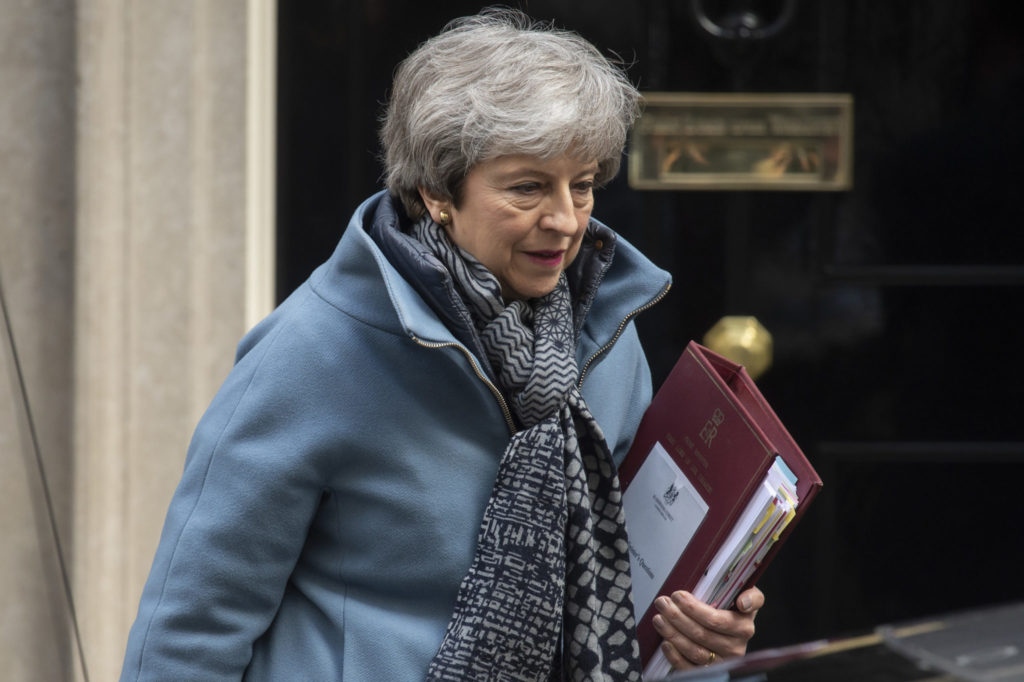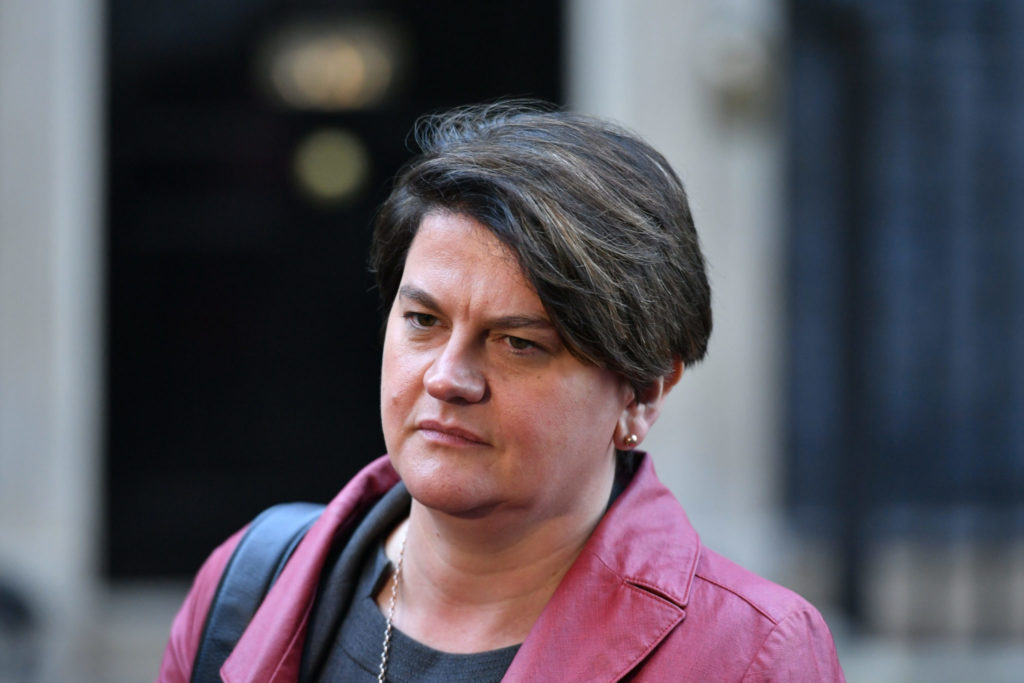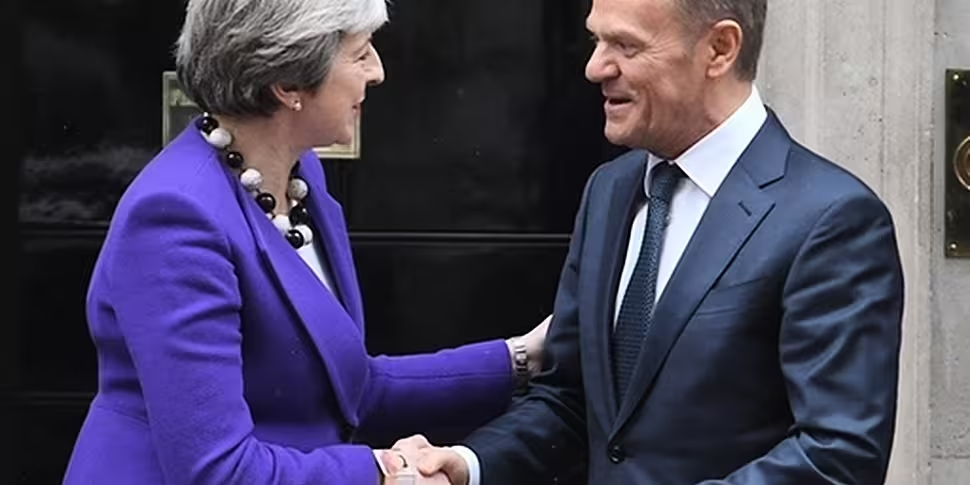The EU Council President Donald Tusk and British Prime Minister Theresa May seem at odds over how long Brexit should be delayed for.
Mr Tusk is formally telling officials from other member states to endorse a long extension until March 31st 2020.
But in a letter to Mr Tusk, Mrs May asked to delay Brexit until June 30th 2019 so British MPs could agree a withdrawal deal.
She also revealed the UK will start preparations to hold the European Parliament elections, set to take place at the end of May.
UK Government preparing to hold European elections as May formally requests further #Brexit extension: https://t.co/KdPkKIb0Ty pic.twitter.com/OtqNBomUJp
— Mick Staines (@shhtick) April 5, 2019
Mr Tusk told officials that the only "reasonable" way out of the Brexit deadlock in parliament is to allow another year for talks.
However, the bloc could offer a clause to allow the UK to leave early if a deal is struck.
An EU source said Mr Tusk told officials: "The only reasonable way out would be a long but flexible extension. I would call it a 'flextension'.
"How would it work in practice? We could give the UK a year-long extension, automatically terminated once the Withdrawal Agreement has been accepted and ratified by the House of Commons.
"And even if this were not possible, then the UK would still have enough time to rethink its Brexit strategy. Short extension if possible and a long one if necessary.
"It seems to be a good scenario for both sides, as it gives the UK all the necessary flexibility, while avoiding the need to meet every few weeks to further discuss Brexit extensions."
 British Prime Minister Theresa May leaves 10 Downing Street, 04-04-2019. Image: Xinhua/Ray Tang
British Prime Minister Theresa May leaves 10 Downing Street, 04-04-2019. Image: Xinhua/Ray TangThe Taoiseach Leo Varadkar appeared to back Mr Tusk's suggestion, saying it would make more sense to offer a longer extension than a rolling one.
Speaking to Clare FM on Friday, Mr Varadkar said the European Council will only grant an extension if Mrs May outlines a clear plan for moving the Brexit process forward.
"I think an extension is better than crashing out with no deal but I am increasingly conscious that these rolling extensions are giving rise to uncertainty," he said.
"People need to plan their lives. Businesses need to make investment decisions.
"Governments need to decide whether we have money to spend on important things like rural broadband or whether we will have to spend that money on protecting farmers and the beef industry from Brexit.
"Every time there is an extension that delays important decisions.
But we will certainly hear what she has to say next Wednesday.
"Obviously we want to avoid no deal for all the reasons I don't need to explain – but if there is a further request for an extension, we would want to know there is a clear plan.
"It can't be another licence for more indecision. Sooner or later the United Kingdom has to decide."
According to Reuters, French President Emmanuel Macron has said talks of further extension are "premature" and he wants a clear idea of the future plan by Tuesday.
Dutch Prime Minister Mark Rutte said the options to prevent no-deal are limited, adding the letter was not enough to give a further extension.
 File photo of DUP Leader Arlene Foster | Image: Dominic Lipinski/PA Wire/PA Images
File photo of DUP Leader Arlene Foster | Image: Dominic Lipinski/PA Wire/PA ImagesWhile Northern Ireland's DUP, which supports Mrs May's Westminster government in a confience and supply deal, has indicated it is against an Article 50 extension.
Party leader Arlene Foster said: "The prime minister's latest plea to Brussels for an extension to Article 50 is unsurprising but unsatisfactory.
"It should not have been like this. Exiting the EU has become chaotic because of intransigence in Brussels and ineffectiveness in London.
"The United Kingdom fighting European elections almost three years after a clear majority voted to leave the EU sums up the disorganised and slapdash approach taken to negotiations by the prime minister.
"We want a sensible deal which protects the union and respects the referendum result but it was foolish strategically in the negotiations to limit the UK's leverage by removing 'no deal' from the table.
"The prime minister should not waste any extension by subcontracting the UK's future to Jeremy Corbyn."
Mrs May had to set out future plans to the EU by this week, under the terms given by the bloc for the first Brexit extension, which is set to end at 11.00pm on April 12th.
No-deal
On Friday, the Central Bank warned that a no-deal Brexit would have an "immediate and adverse effect" on economic growth and employment in Ireland.
It is forecasting growth of 4.2% this year if a deal is reached - but warned that will be slashed to just 1% if the UK leaves the EU without a deal.
It has warned that the food and agriculture sectors would be the worst affected.
Central Bank director of economics and statistics, Mark Cassidy, said any UK failure to reach a deal would affect Irish job creation for next decade.
“If there is a no-deal, in terms of employment, we still would see overall net positive employment growth,” he said.
“But we think employment might be around 50,000 less within the first two years and maybe around twice this – maybe 100,000 less – over a ten year period compared to a scenario where a deal can be agreed.”
He said there will be a negative impact on the economy regardless of whether a deal can be reached.
“Whatever type of Brexit materialises, we think it will be negative for the Irish economy,” he said.
“If a deal can be agreed, then there will still be additional trade frictions with disruptions for businesses and consumers.
“But in the event of a disorderly no-deal Brexit, we think there would be a significant adverse and immediate effect for the Irish economy – affecting economic growth and employment across most parts of the economy.”
He said that while Brexit continues to dominate the public agenda, there are other immediate risks to the economy.
He warned that ongoing fluctuations in global economic and trading conditions will also have an important bearing on Irish economic performance in the coming months.
Additional reporting: Jack Quann









